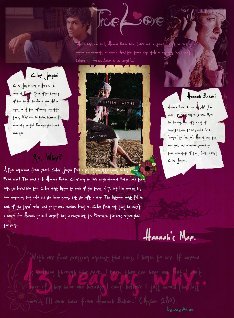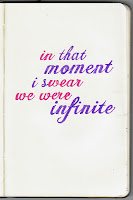They say that — "the best gift that you can give is time", I never completely understood this saying till now, after reading "The Gift" by Cecelia Ahern. Just to be clear; this is not a book review. Consider this more as more of the ramblings of a highly caffeinated person at @ 3 AM.
The average life span of a human being on our planet is 67.2 years, and when you look at it as an outsider, you find it sufficiently long enough to accomplish most of the things a person wishes to, in those 67.2 years.
You learn to speak, learn to walk, you go to school and learn other things along with what its really like to have friends, you learn to face bullies or become one, you reach college and find the distance between now and the years after which you see yourself accomplished staring back at you, you find love, you lose love, you come across love again just to compromise with it and survive, you reach at that point in your life when you may or may not have accomplished all that you ever wanted to, but still are at peace with where you stand, you get married, live a life managing yourself between your work and family, eventually you reach old-age accompanying the various side-effects that follow through and reminisce about your past life, and then face death either as a friend or a foe.
Those 67.2 years of average life would have been just perfectly long enough if this was exactly how our life goes (though it definitely does not appear highly tempting to me). But like most things, "life isn't perfect". We spent most of time crying over things, just to realize later that now we don't even remember the reason why did we shed even a single tear over it, let alone what the hell was "it"?
As an infant we cry over milk; toys; attention, as a kid we progress to crying when we fall; get hurt; get shouted at, further down the lane comes a phase when we cry over lost friends; for a few - declining academics, then we advance further to crying over Heartaches; heartbreaks; lost love and regrets, even after getting through all that, we manage to find some or other reason for crying, maybe out loud or a silent suppressing one with consideration to the fact that we are adults and are not supposed to be caught crying anymore.
But what definitely follows is the fact that we waste most of our precious years crying over things which firstly don't matter and later become the things that puts us in strain even to remember what they really were in the first place.
"Time" , is a highly rare and exotic commodity which is as crucial as 'air' and just like 'air', we share a minimum iota of it. Just think of everything that you ever wished to do at-least once in your life, your things-to-do-before-I-die list. Have you even accomplished a quarter of the stuff that you have unconsciously added to that list? Ever wondered what really are those things that you want to feature on that list? Ever really framed a list? You will be surprised at how much you limit yourself, only to realize later that it was all for nothing, just getting on through with the day just to face the exact same day all over again!
 But with this highly caffeinated state of mind and an aftermath of reading two books back-to-back emphasizing on 'Death' and the little time that we own to hop and pop around this planet, I have realized that the things I fuss over are nothing compared to the misery some of the less fortunate ones have to face, and nothing can be more major or severe enough to devote my share of that little precious time of mine fussing over than the things I really wanted to do with my life, the things that I always wanted to be and the things I always wanted to do: My Things-To-Do-Before-I-Die List :)
But with this highly caffeinated state of mind and an aftermath of reading two books back-to-back emphasizing on 'Death' and the little time that we own to hop and pop around this planet, I have realized that the things I fuss over are nothing compared to the misery some of the less fortunate ones have to face, and nothing can be more major or severe enough to devote my share of that little precious time of mine fussing over than the things I really wanted to do with my life, the things that I always wanted to be and the things I always wanted to do: My Things-To-Do-Before-I-Die List :) I am improvising one right now :)
Because you may never know what you may run out of - Your time or the things that you want to do with it.
























